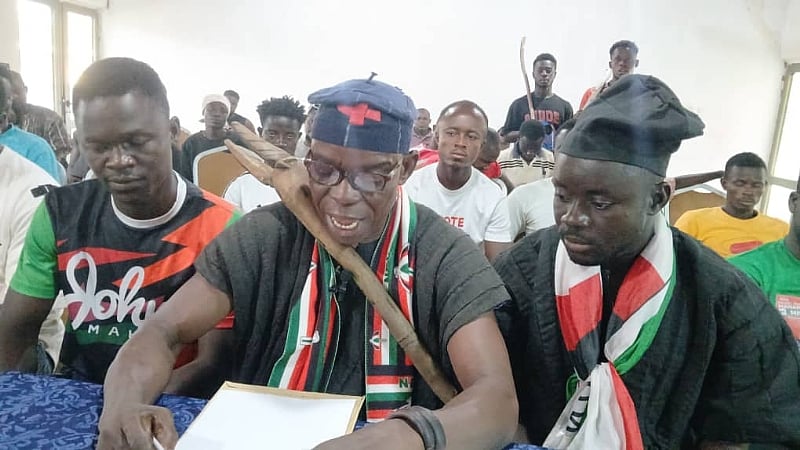The nomination of John Millim Naabwomya as District Chief Executive (DCE) for the Talensi Constituency in Ghana has sparked a firestorm of controversy within the ruling National Democratic Congress (NDC). A faction of disgruntled party members has vehemently rejected Naabwomya’s appointment, citing his alleged close ties with the opposition New Patriotic Party (NPP) as a primary reason for their disapproval. They argue that such an affiliation compromises his loyalty to the NDC and poses a significant threat to the party’s electoral prospects in the upcoming 2028 elections. The dissenters have issued a stern warning, emphasizing the potential for internal division and erosion of support if Naabwomya’s nomination is not rescinded. This internal conflict underscores the delicate balance of power and the importance of perceived loyalty within the Ghanaian political landscape.
The announcement of Naabwomya’s nomination on April 11th was quickly followed by a suspected arson attack on the NDC’s constituency office, further escalating tensions within the party. While no direct link has been established between the nomination and the fire, the timing of the incident has fueled speculation and heightened anxieties among party members. The incident serves as a stark reminder of the volatile political climate and the potential for unrest in the wake of controversial decisions. The destruction of the constituency office represents not only a physical loss but also a symbolic blow to the party’s presence and authority in the region. This incident underscores the need for swift action by party leadership to address the underlying grievances and prevent further escalation of the situation.
The aggrieved NDC members, speaking through their spokesperson Charles King Luu, have publicly denounced Naabwomya’s nomination and called on President John Mahama to immediately withdraw his appointment. They argue that Naabwomya’s alleged association with the NPP undermines party unity and weakens the NDC’s standing within the Talensi Constituency. Luu emphasized the importance of local support and warned that the party’s chances in the 2028 elections could be severely jeopardized if Naabwomya remains the nominee. Their appeal to President Mahama highlights the hierarchical structure of the NDC and the power vested in the presidency to resolve internal disputes. The public nature of their dissent puts pressure on the President to respond decisively and address the concerns of the aggrieved faction.
The core of the opposition to Naabwomya’s nomination revolves around the crucial issue of party loyalty. In a highly competitive political environment, where allegiances are often closely scrutinized, any perceived connection to a rival party can be detrimental to a candidate’s credibility and electability. The aggrieved NDC members argue that Naabwomya’s alleged ties to the NPP raise serious doubts about his commitment to the NDC’s values and agenda. They fear that his appointment could lead to internal sabotage, leakage of sensitive information, and ultimately, a weakening of the party’s position in the constituency. Their concerns highlight the delicate balance between political pragmatism and ideological purity within the NDC.
The situation in the Talensi Constituency underscores the challenges faced by political parties in balancing internal unity with the need to attract a broad base of support. While parties often seek to appoint candidates with a strong local connection and the ability to garner votes, internal divisions can emerge when appointments are perceived as favoring individuals with questionable loyalties or conflicting interests. The NDC now faces the difficult task of navigating this internal conflict while maintaining its overall electoral strategy. The outcome of this dispute could have significant implications for the party’s future, both in the Talensi Constituency and beyond.
The controversy surrounding Naabwomya’s nomination highlights the complex interplay of local politics, party dynamics, and personal allegiances within the Ghanaian political system. The incident serves as a microcosm of the broader challenges facing the NDC as it seeks to maintain power and navigate the complexities of a multi-party democracy. The party leadership’s response to this crisis will be critical in determining its ability to maintain unity, address internal dissent, and ultimately secure its electoral future. The situation also underscores the importance of transparency and accountability in political appointments and the need for effective mechanisms to address grievances and prevent internal conflicts from escalating into open confrontations.














